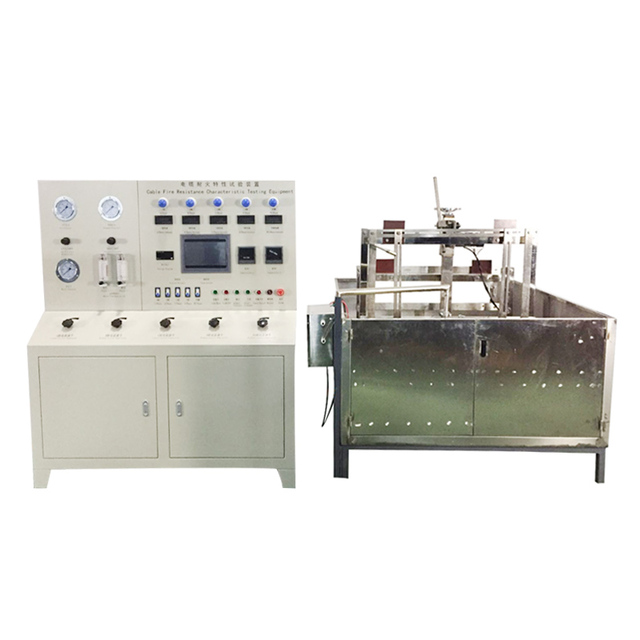manual tensile tester
Understanding the Manual Tensile Tester A Comprehensive Overview
The manual tensile tester is an essential instrument in material science and engineering. It plays a crucial role in determining the mechanical properties of materials, primarily focusing on their tensile strength, ductility, and elasticity. This device is particularly important for industries where material performance is critical, such as construction, manufacturing, and aerospace.
What is a Manual Tensile Tester?
A manual tensile tester is a mechanical device used to apply tension to a sample material until it fails. The primary objective is to measure how much force the material can withstand while being stretched. This instrument typically consists of a frame, grips to hold the sample, a loading mechanism, and a scale or readout device to measure the force applied during the test.
Operating Principle
The operation of a manual tensile tester is straightforward. The material sample is securely fastened between two grips. The operator then adjusts the tester to apply a gradual and controlled force. As the force increases, the sample elongates, and the operator observes the readings on the scale. Eventually, the sample reaches its breaking point, and the maximum force applied is recorded as the material's tensile strength.
Importance of Tensile Testing
Tensile testing is vital for various reasons
1. Material Selection Engineers and designers use tensile test results to select appropriate materials for specific applications. Understanding the mechanical properties of materials guides decision-making and ensures safety and performance standards are met.
2. Quality Control In manufacturing processes, tensile testing helps ensure that the produced materials meet predefined specifications. By performing regular tests, companies can maintain product quality and adhere to industry standards.
manual tensile tester

3. Research and Development In material science, tensile testing is fundamental in researching new materials and improving existing ones. By understanding their mechanical behavior, scientists can develop materials with enhanced properties for innovative applications.
Types of Materials Tested
Manual tensile testers are versatile and can accommodate a wide range of materials, including metals, polymers, textiles, and composites. Each material type exhibits unique mechanical properties, and testing them under similar conditions allows for comparative analysis. For instance, metals generally demonstrate high tensile strength, while polymers might show greater ductility.
Test Standards and Procedures
Tensile testing can be governed by various standards, such as ASTM (American Society for Testing and Materials) or ISO (International Organization for Standardization). These organizations provide guidelines on sample preparation, testing procedures, and data analysis. Adhering to these standards ensures that the test results are reliable and comparable across different studies or applications.
Challenges and Limitations
While manual tensile testers are excellent for many applications, they come with challenges and limitations. Manual operation can introduce human error, affecting precision and repeatability. Additionally, the device may not be suitable for testing very high-strength materials that require a more robust testing setup. In such cases, more advanced electronic tensile testers may be preferred.
Conclusion
In summary, the manual tensile tester is a fundamental tool in material testing, providing essential insights into the tensile properties of various materials. Its significance spans across multiple fields, including engineering, manufacturing, and research. By understanding the capabilities and limitations of this device, professionals can make informed decisions that enhance material performance and ensure safety across applications. Despite its simplicity, the manual tensile tester remains a cornerstone in the ongoing pursuit of knowledge and innovation in material science.
-
Why the Conductor Resistance Constant Temperature Measurement Machine Redefines Precision
NewsJun.20,2025
-
Reliable Testing Starts Here: Why the High Insulation Resistance Measuring Instrument Is a Must-Have
NewsJun.20,2025
-
Flexible Cable Flexing Test Equipment: The Precision Standard for Cable Durability and Performance Testing
NewsJun.20,2025
-
Digital Measurement Projector: Precision Visualization for Modern Manufacturing
NewsJun.20,2025
-
Computer Control Electronic Tensile Tester: Precision and Power for the Modern Metal Industry
NewsJun.20,2025
-
Cable Spark Tester: Your Ultimate Insulation Assurance for Wire and Cable Testing
NewsJun.20,2025
 Copyright © 2025 Hebei Fangyuan Instrument & Equipment Co.,Ltd. All Rights Reserved. Sitemap | Privacy Policy
Copyright © 2025 Hebei Fangyuan Instrument & Equipment Co.,Ltd. All Rights Reserved. Sitemap | Privacy Policy
